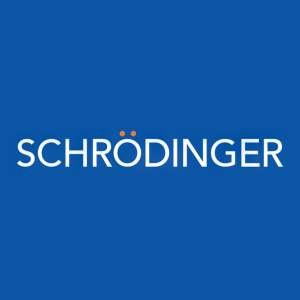Schrödinger Presents New Preclinical Data Supporting Advancement of CDC7 Inhibitor Development Candidate, SGR-2921, at American Society of Hematology 2022 Annual Meeting
Schrödinger, Inc. (Nasdaq: SDGR) presented promising preclinical data on its CDC7 inhibitor, SGR-2921, at the American Society of Hematology meeting. The data demonstrate strong anti-tumor activity in multiple acute myeloid leukemia (AML) models, both as a monotherapy and in combination with standard care agents. Plans are in place to submit an Investigational New Drug (IND) application to the FDA in the first half of 2023, followed by a Phase 1 clinical trial for patients with relapsed/refractory AML.
- Strong anti-tumor activity of SGR-2921 in AML models.
- Plans to submit IND application in the first half of 2023.
- Potential for combination therapies showing enhanced efficacy.
- None.
Insights
Analyzing...
Preclinical Data Highlight Strong Monotherapy Anti-Tumor Activity Across Multiple Acute Myeloid Leukemia Models and Combination Potential with Other Agents
On Track to Submit Investigational New Drug Application for SGR-2921 to the
CDC7 is a cell cycle kinase involved in DNA replication and is an important activator of replication stress and DNA damage responses. CDC7 inhibition is considered a promising therapeutic approach for the treatment of cancers, including AML. Schrödinger is advancing SGR-2921 through investigational new drug (IND)-enabling studies with plans to submit an IND application to the
“The strength of our preclinical data presented today underscore the power of our computational platform to overcome drug design challenges that plague the industry, in this case designing a potent CDC7 inhibitor that could potentially be combined with other DNA damage repair therapies, such as PARP and BCL-2 inhibitors,” said
Additional Details About the Study
The presentation (Abstract #2653), “Inhibition of CDC7 with SGR-2921 in AML models results in enhanced DNA damage and anti-leukemic activity as monotherapy and in combination with standard of care agents,” highlighted preclinical data for SGR-2921, which was discovered using Schrödinger’s proprietary physics-based computational platform. This platform enabled Schrödinger to assess 79 billion compounds computationally and synthesize only 226 compounds across all series for further screening. In a panel of approximately 300 cancer cell lines, AML cell lines were the most sensitive to SGR-2921, and AML patient samples were highly sensitive to CDC7 inhibition ex vivo. In vivo, SGR-2921 showed strong anti-tumor growth activity in multiple AML xenograft models at tolerated doses. In combination with hypomethylating agents, SGR-2921 increased the level of replication stress, DNA damage and apoptosis markers in vitro. Combination of SGR-2921 with venetoclax (BCL2 inhibitor) showed synergistic anti-tumor activity both in vitro and in vivo. SGR-2921 was highly active in AML cell lines resistant to FLT3 inhibitors, hypomethylating agents and venetoclax, and in multi-agent resistant cell lines. The combination of SGR-2921 with FLT3 inhibitors partially restored sensitivity to FLT3 inhibition in FLT3 resistant AML cell lines. Together, these data suggest that SGR-2921-mediated CDC7 inhibition could be a novel treatment regimen, with potential utility in patients with relapsed and refractory AML.
About Schrödinger
Schrödinger is transforming the way therapeutics and materials are discovered. Schrödinger has pioneered a physics-based computational platform that enables discovery of high-quality, novel molecules for drug development and materials applications more rapidly and at lower cost compared to traditional methods. The software platform is licensed by biopharmaceutical and industrial companies, academic institutions, and government laboratories around the world. Schrödinger’s multidisciplinary drug discovery team also leverages the software platform to advance a portfolio of collaborative and proprietary programs to address unmet medical needs.
Founded in 1990, Schrödinger has approximately 800 employees and is engaged with customers and collaborators in more than 70 countries. To learn more, visit www.schrodinger.com, follow us on LinkedIn and Instagram, or visit our blog, Extrapolations.com.
Cautionary Note Regarding Forward-Looking Statements
This press release contains forward-looking statements within the meaning of The Private Securities Litigation Reform Act of 1995, including but not limited to, those statements regarding the potential advantages of our computational platform, the potential of CDC7 inhibition for the treatment of cancer, the therapeutic potential and properties of SGR-2921, the potential for SGR-2921 to be used as a monotherapy and in combination with standard of care agents, the expected timing of our planned IND submission to the FDA for SGR-2921, and the expected timing of the initiation of our Phase 1 clinical trial of SGR-2921 in patients with relapsed/refractory AML. Statements including words such as “aim,” "anticipate," "believe," "contemplate," "continue," "could," "estimate," "expect," “goal,” "intend," "may," "might," "plan," "potential," "predict," "project," "should," "target," "will," "would" and statements in the future tense are forward-looking statements. These forward-looking statements reflect our current views about our plans, intentions, expectations, strategies and prospects, which are based on the information currently available to us and on assumptions we have made. Actual results may differ materially from those described in the forward-looking statements and are subject to a variety of assumptions, uncertainties, risks and factors that are beyond our control, including the uncertainties inherent in drug development, such as the conduct of research activities and the timing of and our ability to initiate and complete preclinical studies and clinical trials, whether results from preclinical studies will be predictive of the results of later preclinical studies and clinical trials, uncertainties associated with the regulatory review of IND submissions, clinical trials and applications for marketing approvals, the ability to retain and hire key personnel and the direct and indirect impacts of the ongoing COVID-19 pandemic on our business and other risks detailed under the caption "Risk Factors" and elsewhere in our
View source version on businesswire.com: https://www.businesswire.com/news/home/20221212005167/en/
jaren.madden@schrodinger.com
617-286-6264
tracy.lessor@schrodinger.com
617-519-9827
Source: Schrödinger







